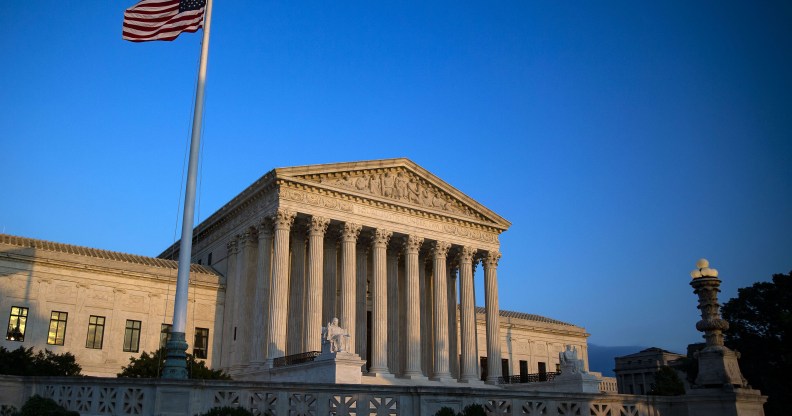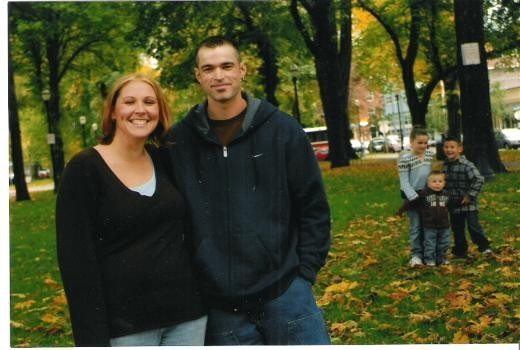Christian bakers’ same-sex wedding cake case to return to the Supreme Court

The Supreme Court has reportedly ordered the bakery’s case to be sent back to a lower court, after it ruled on 30 June that creative professionals are legally allowed to refuse LGBTQ+ customers. (Al Drago/Bloomberg via Getty Images)
A 10-year-old case in which a Christian bakery was fined thousands of dollars for refusing to make a wedding cake for a lesbian couple is set to return to court.
The US Supreme Court has reportedly ordered the matter sent back to a lower court, after it ruled in a separate case on Friday (30 June) that creative professionals are legally allowed to refuse LGBTQ+ customers.
The ruling came after Christian designer Lorie Smith, from Colorado, argued that she should not be punished under the state’s anti-discrimination act for refusing to make wedding websites for LGBTQ+ couples – should they ever request her services – as doing so is against her religion.
The court ruled by six to three that Smith had the right to refuse LGBTQ+ couples.
Associate justice Sonia Sotomayor called the ruling a “licence to discriminate” that would “mark gays and lesbians for second-class status”.
Now, the case concerning a 2013 incident when Oregon-based Christian bakers Aaron and Melissa Klein refused to bake a cake for the wedding of Laurel and Rachel Bowman-Cryer, is to return to the Oregon Court of Appeals for review based on Friday’s ruling.
After the 2013 incident, the lesbian couple filed a complaint with the state of Oregon for discrimination, with a court later ruling in their favour and fining the bakery, Sweet Cakes by Melissa, $135,000 (£106,000) – later reduced to $30,000 (£23,600).
The bakers went to the Supreme Court to appeal the decision, but their case was declined in 2019.
After Smith’s case, however, anti-LGBTQ+ Christian organisation First Liberty Institute said the bakers would continue to fight in court.
“The Kleins have been fighting for the First Amendment for over a decade and we will stand with them no matter how long it takes to get the victory they deserve,” First Liberty Institute president Kelly Shackelford told the Christian Post.

In a 2016 column, the Bowman-Cryers explained that since the court case over their wedding cake began, they had been subject to “vitriolic” harassment.
“We stopped leaving the house, opening messages, and picking up the phone, we even quit our jobs to try to keep our family safe from the outpouring of vitriolic attention that came from the case,” the couple said.
“Retreating didn’t make a difference, and as we remained secluded and silent, the fury over the case just grew. Every step of the way, we have felt guilt and humiliation at seeing our name used by the right to justify discrimination… The human cost [of] this battle is real to us because we are living it.”
Court cases like the ones she went through are “stigmatising” and “harmful”, Rachel Bowman-Cryer added in 2019.
“To be called an abomination because of who you are and who you love, and now always to be afraid that the next store we go into will reject us with the same contempt and discrimination, that’s the legacy of our treatment by the Kleins,” she said.

